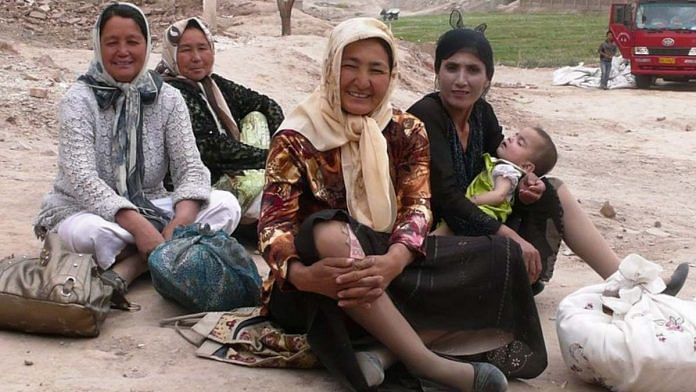Washington: The US House of Representatives overwhelmingly approved legislation that would impose sanctions on Chinese officials over human rights abuses against Muslim minorities, prompting Beijing to threaten possible retaliation just as the world’s two largest economies seek to close a trade deal.
The bill is an amended version of the Senate’s S. 178 to support the Uyghurs, a Muslim ethnic group in western China, and it passed Tuesday, on a vote of 407 to 1. China’s foreign ministry on Wednesday urged the US to stop the bill and vowed to further respond if the legislation progresses, without providing any details.
Ahead of the vote, Chinese state media warned that the government could release a list of “unreliable entities” that may lead to sanctions against US companies. The Xinjiang bill follows legislation supporting Hong Kong protesters signed into law last week by President Donald Trump.
The legislative moves threaten to disrupt trade talks as a mid-December deadline approaches for new US tariffs to take effect on Chinese goods. Stocks in Asia opened lower on Wednesday, with Australia, South Korea and Japan among those seeing declines.
Hu Xijin, editor-in-chief of the Communist Party-backed Global Times tweeted earlier Tuesday that US officials may face visa restrictions and limited travel to Xinjiang province, where the Uyghurs minority is concentrated.
Based on what I know, since US Congress plans to pass Xinjiang-related bill, China is considering to impose visa restrictions on US officials and lawmakers who’ve had odious performance on Xinjiang issue;it might also ban all US diplomatic passport holders from entering Xinjiang.- Hu Xijin, December 3, 2019
China had already moved to sanction some human rights organizations and halt US naval visits to Hong Kong in response to last week’s two new US laws — one to place the territory’s special trading status under annual review and the other to ban the export of crowd control devices to the city’s police.
Legislation to hold China accountable for human rights violations has received rare bipartisan support in a Congress that is otherwise bitterly divided along party lines over whether to impeach Trump, and other issues.
That creates a dilemma for the president, who can’t afford to lose political capital opposing Congress but this week acknowledged that signing the Hong Kong legislation is making a trade deal this year increasingly unlikely.
Trump said Tuesday in London that “I have no deadline” for a trade accord with China and that he’d be willing to wait another year to get an agreement that favors the US “It can’t be an even deal,” he told reporters. “If it’s an even deal, it’s no good.”
The House version of the Uyghurs human rights measure amends a Senate bill passed without objection in September. It adds provisions that require the president to sanction Chinese government officials responsible for the repression of Uyghurs , a predominantly Muslim Turkic ethnic group, and places restrictions on the export of devices that could be used to spy on or restrict the communications or movement of members of the group and other Chinese citizens.
Lawmakers, recognizing the momentum behind human rights legislation concerning China, are working to resolve differences between the House and Senate bills to agree on one version that can pass swiftly through Congress before the end of the year.
“It’s not about the particulars of it, it’s not about the policy of it,” Senator Marco Rubio, a Florida Republican and the lead sponsor of the Senate version of the bill, said of the changes proposed in the House. Rubio added that there’s broad agreement about the underlying goals of the legislation.
Among other provisions, the bill requires the president to submit to Congress within 120 days a list of senior Chinese government officials guilty of human rights abuses against Uyghurs in Xinjiang or elsewhere in China. That list would include Xinjiang Party Secretary Chen Quanguo and officials responsible for mass incarceration or “re-education“ efforts that single out Uyghurs and other predominantly Muslim ethnic minorities.
The president would be required to impose visa and financial restrictions on the listed individuals under the Global Magnitsky Act.
The bill would also tie US policy toward China to the Chinese government’s actions in Xinjiang and the treatment of the Uyghurs. It would require the State Department to submit a report to Congress on human rights violations in the region.
“We need to get something sent over here that’s acceptable to both sides and that we could hopefully persuade Banking to waive jurisdiction on it,” Rubio said, referring to the Senate Banking Committee, which has jurisdiction over export controls.
Supporters of the bill in the Senate are seeking a way to quickly pass the legislation, which was changed substantially from its original form by the House. Under normal circumstances, the legislative process would essentially start over, but with Congress due to depart Washington in less than three weeks, expedited procedures are being considered.-Bloomberg
Also read: ‘Ideological cure’ for Uyghurs, ‘no mercy’ — what leaked papers reveal about Xinjiang camps






